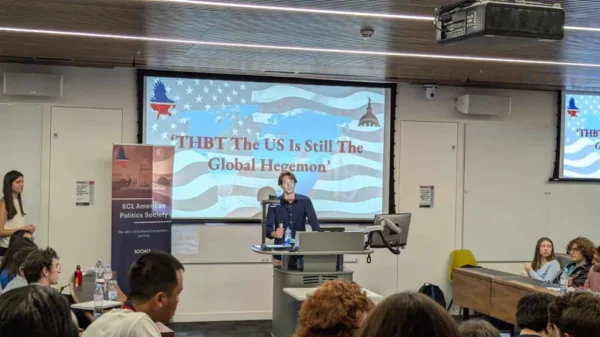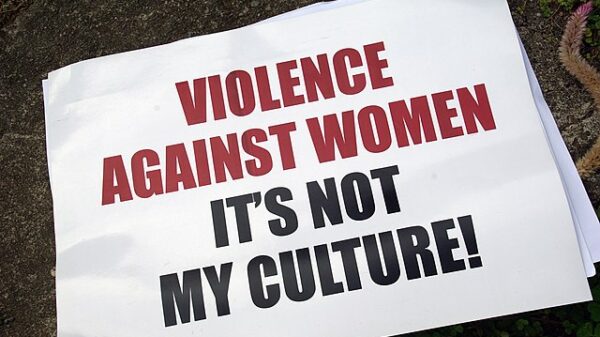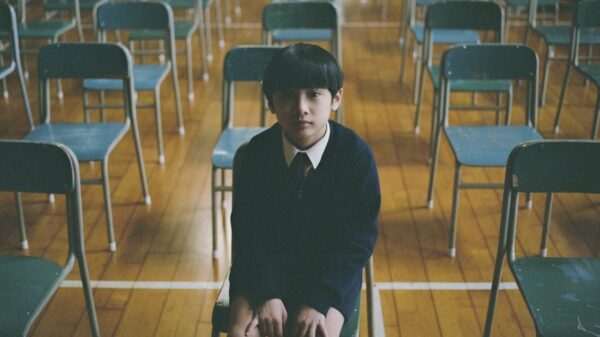Staff Writer Angelika Etherington-Smith denounces the failure of the movie ‘It Ends With Us’ to give sufficient attention to gender-based violence — both in its inappropriate marketing strategy and in the trivial celebrity drama, involving its cast.
One of the releases vying for the ‘Movie of the Summer’ title in 2024 is ‘It Ends with Us’, starring Blake Lively, Brandon Sklenar and Justin Baldoni, who is also the director. Over the last week, however, the film gathered a lot of online criticism stemming primarily from the cast’s behaviour and failure to promote the movie appropriately. From the controversial start of Colleen Hoover’s book to exploitative marketing claims – undoubtedly, the biggest issue with ‘It Ends With Us’ is the dilution of its key message and the failure to successfully raise awareness about violence against women.
Whether opening TikTok or reading Rolling Stone, the first thing you’re likely to encounter are either ads encouraging you to “Grab your friends, wear your florals and go watch the movie” or rumours of behind-the-scenes drama and an alleged rift between Lively and Baldoni, the two leads. This is an issue in itself.
Unless we come up with a coordinated, focused approach to combat violence against women, no book selling a million copies, no film going viral and no well-meaning celebrity can make a significant impact
‘It Ends With Us’ tells the story of breaking generational cycles of abuse, specifically in familial and romantic relationships. The title comes from the pivotal moment in the story when the female protagonist — Lily, is holding her newborn daughter. After reflecting on her life, growing up with a father who mistreated both her mother and herself, she chooses to divorce her abusive husband, saving her daughter from a similar fate. It’s a bittersweet and empowering scene, emblematic of the struggles of women experiencing domestic abuse and the strength they possess — even if they’ve been raised to believe otherwise.
In the book, this message is unfortunately largely dampened by the poor quality of Hoover’s writing. This is evident in the story’s structure and the weak execution of sensitive moments often resulting in romanticisation of toxic relationships — a sexual relationship between an 18-year-old boy and a 15-year-old girl is seen as normal, abusive behaviours are taken as sentimental and the perpetrator evades serious repercussions.
While Lily does get a divorce, the abuser obtains shared custody of their child and faces no criminal or social consequences, neither in the form of ostracisation from his family nor through losing his job. Although it is believable that Hoover had positive intentions with the central message of the book, her writing fails to effectively depict the complex nature of abusive relationships and condemn harmful behaviour appropriately. Sadly, the movie follows in the same footsteps.
The film plot is mostly faithful to the book, though it does introduce a few changes, including ageing up the characters and adjusting certain scenes to make them either less subtle or more romanticised. Sadly, most reactions to the film don’t focus on those aspects and are instead divided into two camps. One propels outrage at the marketing strategy of the movie which positions it as a romantic tragi-comedy instead of placing appropriate focus on the subject of domestic violence and toxic relationships; the other centres on debates about the alleged drama behind the scenes.
It makes sense why these are the topics debated. It is certainly not appropriate for Blake Lively to roll out a list of cocktails with her alcohol brand Betty Buzz adjusted to Betty Blooms to make it more aligned with the film. The actress also dismissed a sensitive interview question about her reactions to fans approaching her with their personal stories of surviving abuse. Her response was nothing short of disrespectful.
The press also contributed their fair share of stoking the fire regarding the rumours of a divide between the cast members. The extensive coverage of the story by everyone from Forbes to Radio Times and the Daily Mail not only forced Baldoni to hire a PR crisis team but also made the attention almost laser-focused on the moves of the movie stars. With so much ‘juicy drama’ overtaking the headlines, the main message of the film is quickly getting lost in the weeds.
A situation like this is highly representative of how the media often depicts stories of women subjected to different forms of violence. The film’s release came soon after the heartbreaking Southport stabbing and the news about a doctor being raped and murdered in Kolkatta. While the events triggered protests across their respective countries, the coverage of both cases often focused on the perpetrators of the violence rather than on the women themselves: the British riots quickly took on a tone of xenophobia and right-wing nationalism, while Kolkatta experienced a break-in at the hospital that disrupted the crime scene and impeded the investigation into the tragic death. The loss of focus on the subject of violence against women is consistent, strong and damaging.
At the same time, male-perpetrated violence is not the only problem. Female-perpetrated violence against other women, especially in the world of Hollywood, is also frequently dismissed and abusers face few significant consequences. The best example is the positive environment in Lizzo’s Instagram comment section. After the allegation of sexual harassment that several dancers brought against the musician, she asked the judge to dismiss their claims and announced her departure from the industry shortly after.
The comments under the artist’s recent video update on her fitness and weight journey are overwhelmingly positive and congratulatory, anticipating her upcoming return to the music scene with a new album. Rare comments, here and there, mention any allegations of abuse or discuss the power imbalance that Lizzo exercised in her relationship with the employed dancers. Most official media outlets keep covering her fitness progress and her reaction to the South Park episode she was mentioned in as if the allegations never happened at all.
With the increasing speed of our news cycle, it is ever so easy to get swept up by it all: the drama, the outrage, the commentary, the personality assessments. It’s not hard to see why. It’s fun to follow trends; it’s fun to be ‘in the know’ and up to date with the latest celebrity gossip. Key messages, good intentions and uplifting ideas get lost and squashed, falling by the wayside.
This is the greatest failure of the ‘It Ends With Us’ production. In telling the story of setting boundaries, self-advocacy and breaking abuse cycles, the crew simply could not afford to get mixed up in petty drama; could not afford to fail in marketing the film appropriately; could not afford to pull the spotlight onto anything else — not if they truly cared about the point of the movie. And yet, they have. So far, Baldoni has been the only cast member to consistently bring attention to abuse support organisations, share alternative marketing material and refocus the conversation on the subject of domestic violence. While it is good to see it, especially coming from a man, it’s nowhere near enough in a project with such a diverse cast and crew, and a female-created, female-led narrative.
Unless we come up with a coordinated, focused approach to combat violence against women, no book selling a million copies, no film going viral and no well-meaning celebrity can make a significant impact and take a proper stand against domestic violence. Without a true commitment to vulnerability, bravery and change, nothing ends with us.
If you or someone you know is affected by any of the subject matter covered in this piece, please consider reaching out to Solace, Men’s Advice Line or Refuge. Call 0808 2000 247 for Refuge’s 24/7 helpline or use their text and BSL services.



















